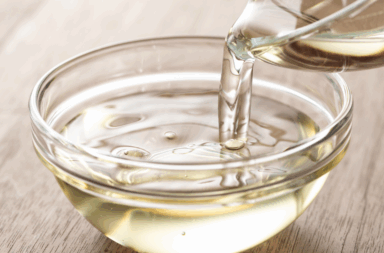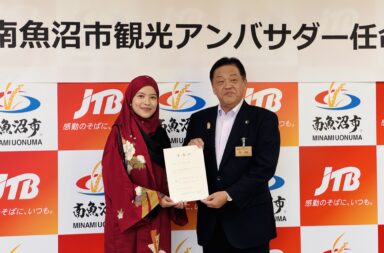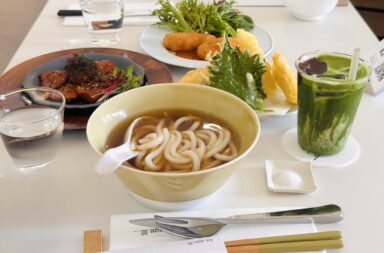This post is also available in: Indonesia
Written by: Nareswari Putri Sulisvianthi
Navigating Halal-Friendly Options in Japan’s Countryside
Did you know what’s often missing in Hokkaido? Muslim-friendly or halal restaurants. The farmer’s produce here is top-notch, but pork is so prevalent it finds its way into almost every dish (well, except for the seafood!). This makes finding halal restaurants quite a challenge.
As a Muslim, I feel my efforts to ensure everything is halal triple when dining out or shopping at the supermarket. I live in a rural part of Hokkaido, where the nearest Gyomu Supermarket, Jupiter, or Asian stores (the places that sell halal food) are about 50 km away, via mountain roads. It’s not as simple as saying, “Let’s hang out in the city,”, especially in winter, when thick snow covers the mountain roads (very slippery!) — not to mention the snowstorms!
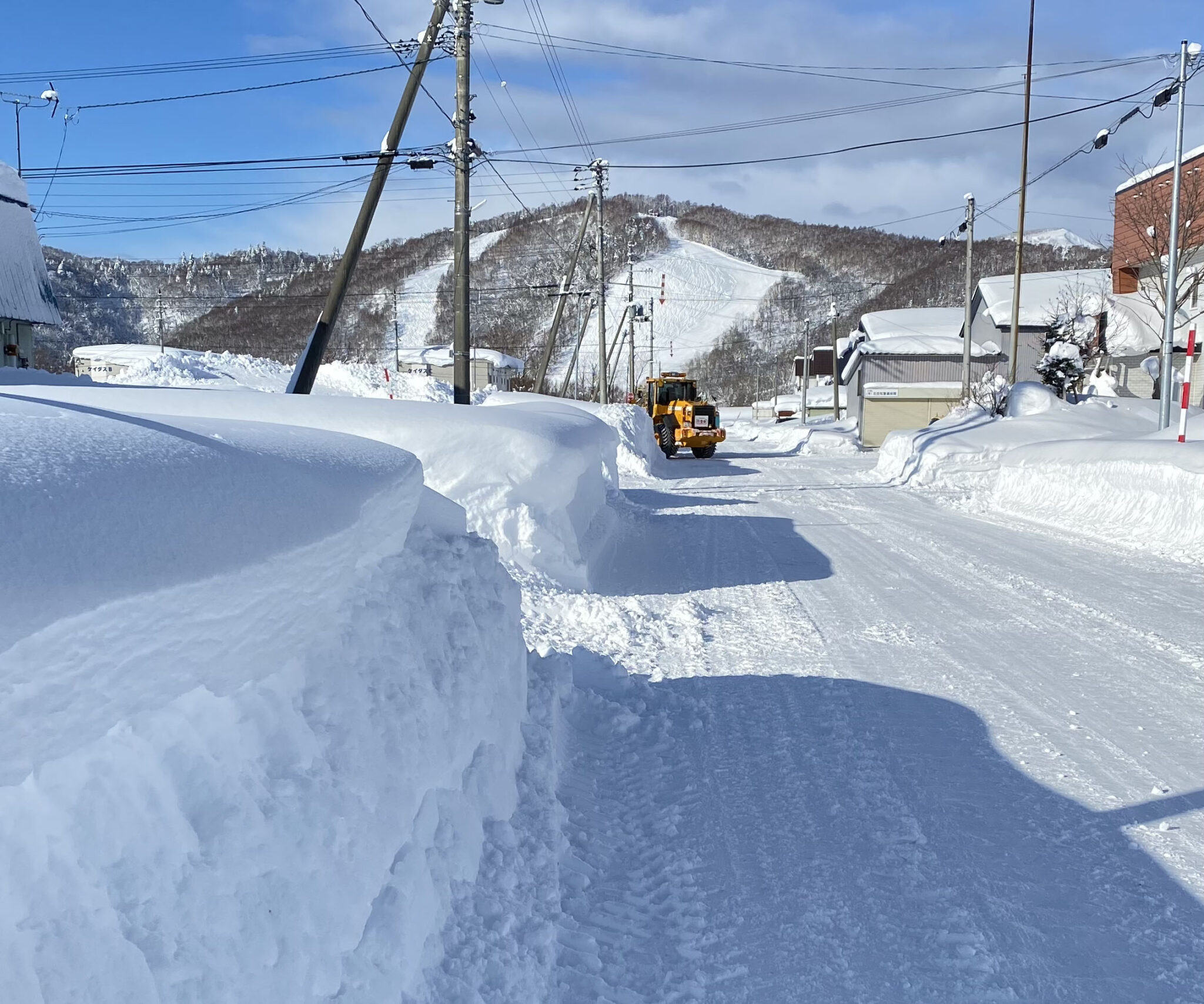
A typical winter day in Horokanai on a clear day
Do you see how tall the snow wall is?
See Also
Travel Guide to Hokkaido (Crowd-Free)
Online delivery is always an option, but it often costs more since shipping to Hokkaido is almost 2000 yen (sometimes higher). So, what should I do?
Here are my tips for surviving as a Muslim in rural Hokkaido (very practical, as they are based on my experience).
1. Invest in a Large Fridge with a Big Freezer Compartment
When I moved to Horokanai-cho (I bet no one can guess where that is! It’s here in the middle of Hokkaido), I ordered a large fridge on Amazon Japan and had it delivered to my doorstep for free (thanks to Amazon Prime!).
Recently, I discovered that you can buy a freezer-only type at thrift stores — a good option if you have a way to transport it.
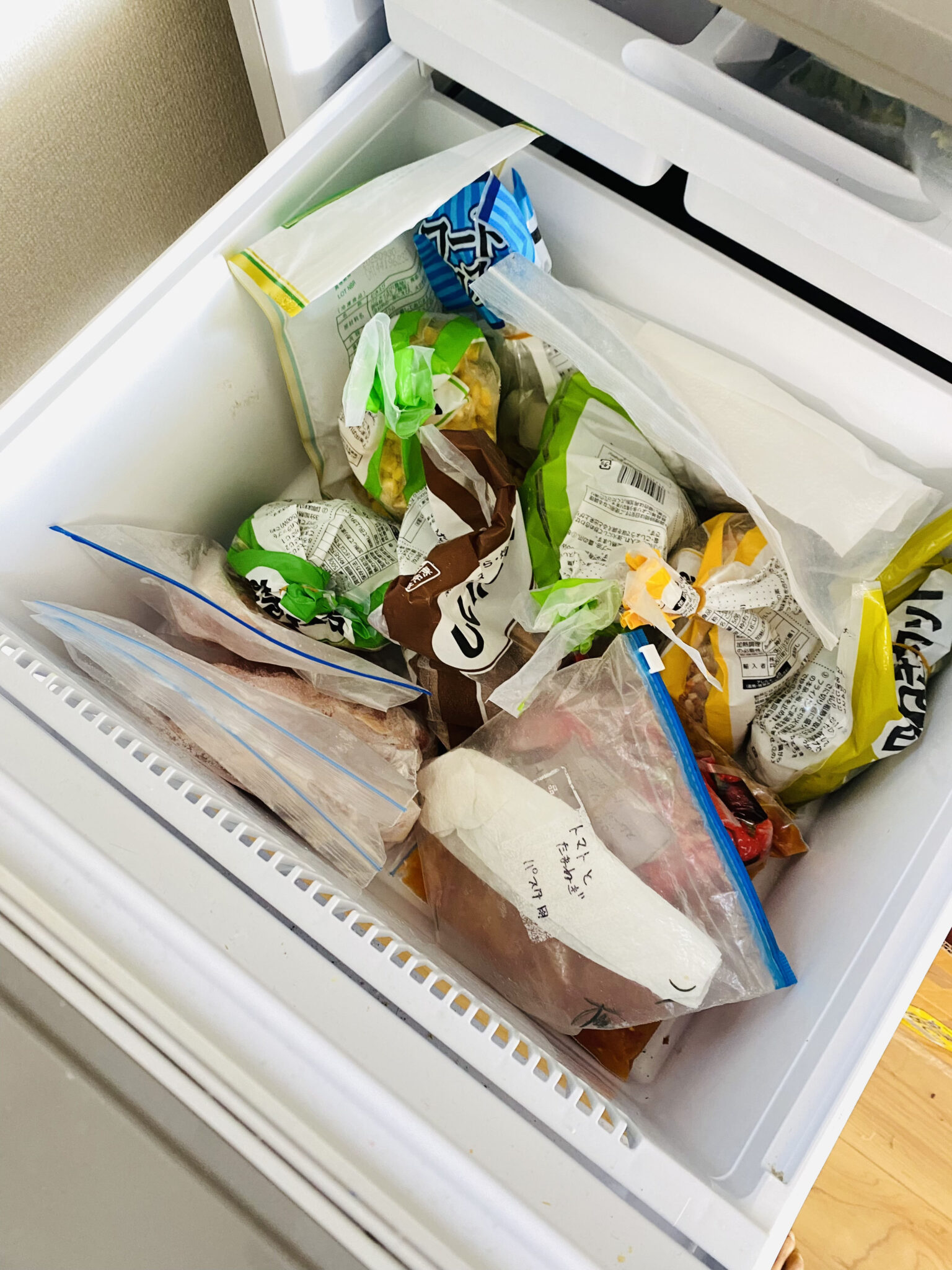
A large freezer compartment is very helpful to store a lot of food for a long time!
Why a large fridge?
Because I can stock enough frozen halal food for at least three weeks. I cook for myself 90% of the time.
2. Find Asian Online Stores That Sell Halal Foods
This is why it’s important to connect with our senpai (senior friends) — information flows!
I’ve been ordering Indonesian products from Toko Halal Niigata or Toko Indonesia in Shin-Okubo (Tokyo). However, since it can be expensive to buy everything this way, especially with high delivery fees to remote islands like Hokkaido, I only purchase primary items like frozen spices and herbs, and occasionally halal chicken sausage.
I also sometimes join in bulk purchases with Indonesian friends nearby to save on delivery costs, but this is usually only possible in spring, summer, or autumn.
3. Monthly Grocery Runs to Gyomu Supermarket
It’s no secret that Gyomu Supermarket offers good and reasonable frozen produce.
In the nearest city, Asahikawa, there are two Gyomu Supermarkets that I often visit. I typically stock up for three weeks to save time and gasoline. Halal chicken, condiments, and snacks are available at Gyomu, along with frozen veggies (except in summer) and fish fillets.
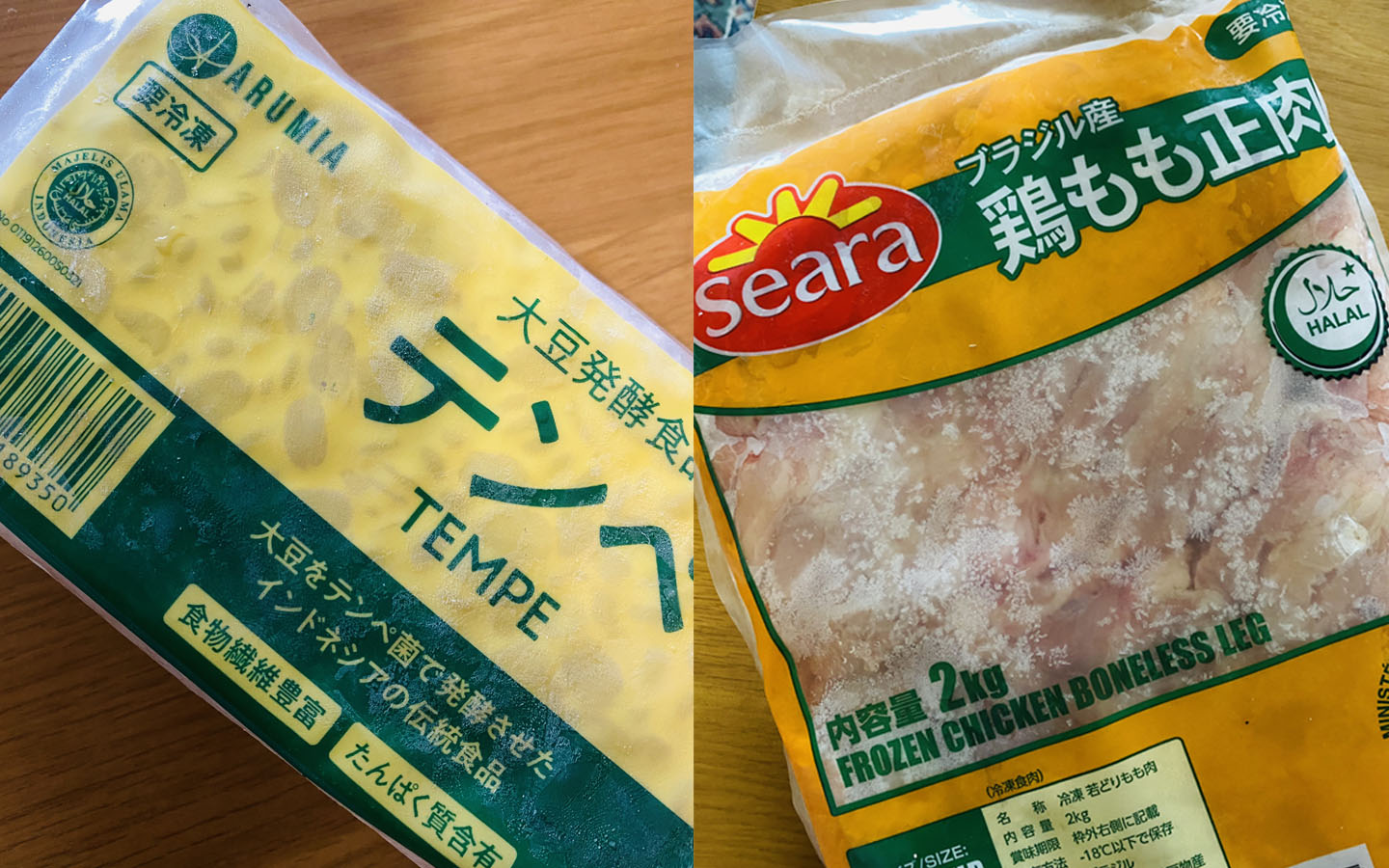
Tempe and Halal chicken from Gyomu Super.
Frozen veggies are the next best thing to fresh ones, as the nutrition is almost on par, and they save cooking time since most are pre-cut.
See Also
Halal Food at Japanese Supermarket; Your Halal Needs at Gyomu Super!
4. Get Used to Reading Labels, Especially When There’s No Halal Mark
To be honest, living in a rural (almost remote) area means limited access to halal stores, which are mostly in big cities. You have to accept that only a few Japanese local products have a halal mark because awareness is still growing here
But you have to survive in Japan.
Aside from using apps like Halal Gourmet Japan, you need to learn to recognize certain kanjis. Here are some to note:
- 豚肉, ポーク, ポークエキス, 豚汁, 豚油, 豚脂肪, ハム, ベーコン – All pig-related
- 酒, みりん, アルコール, クッキング酒, 料理酒 – All alcohol-related
- ゼラチン – Gelatin
If you find none of these, check the allergens list; sometimes, products mention if they are produced on the same line as non-halal items, which you might want to reconsider purchasing.
See Also
Complete Guide to Identify Halal Products in Japan
I’ve been practicing this approach for five years, and it’s been effective 95% of the time.
My recommendation is to always double-check before buying or eating anything. If you discover something that’s not halal, you can avoid it in the future.
I hope this information helps and sparks your interest in visiting Hokkaido!
